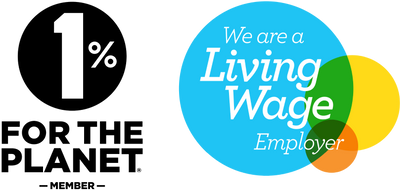Introducing // Rebuild Woman's Hope

The story behind Congolese coffee is troubled at best. The positive side is that millions of pounds have been invested in development funding, there is fantastic coffee being sold by world-renowned roasters and even celebrity endorsement has brought attention to the positive impact the coffee economy can bring.
As it so often happens, there is another more complicated side which is frustrating and sad. The vast majority of DRC’s coffee farmers still struggle to survive and it remains a complicated place plagued by extreme poverty, corruption, and violence.
The DRC is still one of the poorest countries in the world and recovering from 20 years of war. On top of this, it is considered one of the most dangerous place in the world to be a woman.
Introducing 'Rebuild Woman's Hope' (RWH)
Established in 2013 by gender equity pioneer Marceline Budza, Rebuild Women's Hope (RWH) is a non-profit organisation with the aim of empowering Congolese women.
In 2015, several coffee exporters teamed up with SHIFT (Social Impact Solutions) and RWH in order to leverage the potential that coffee has in creating economic opportunities for female smallholders on Lake Idjwi. Together, the partners have provided members of RWH with the tools and the know-how to take control of their economic future by integrating them into the coffee chain.
The program has included building two washing stations on Idjwi Island - where our Rebuild Women's Hope coffees are processed - and entrepreneurship and economic empowerment training for RWH’s members.

Idjwi Island is situated on Lake Kivu, lying between Rwanda and mainland DRC. Up until very recently, the coffee produced on Idjwi had no export market. Often, this meant it was sold to middlemen who would smuggle it across the water in boats into neighboring countries for resale.
Even with optimal conditions for coffee cultivation - (fertile soils and altitudes of 2,000 meters) - the quality of production has suffered due to lack of markets, agronomy training, and finance. Thanks to initiatives like RWH they are now farming using the best agronomic practices, quality-focussed processing, protocols & infrastructure. This has seen the group's coffees break into the specialty market, where it attracts price premiums that have a huge benefit on the livelihoods of its farmers.
Today, RWH has expanded to 1,800 members growing high-quality coffee and the program continues to build a spirit of entrepreneurship among the women on Idjwi Island. The close collaboration has allowed RWH and its members to realise their dream of rebuilding hope and dignity among women coffee farmers in the DRC.
In 2017, Marcline won the prestigious Robert Burns Humanitarian Award for her role in helping transform the lives of women in DRC.
Available here







